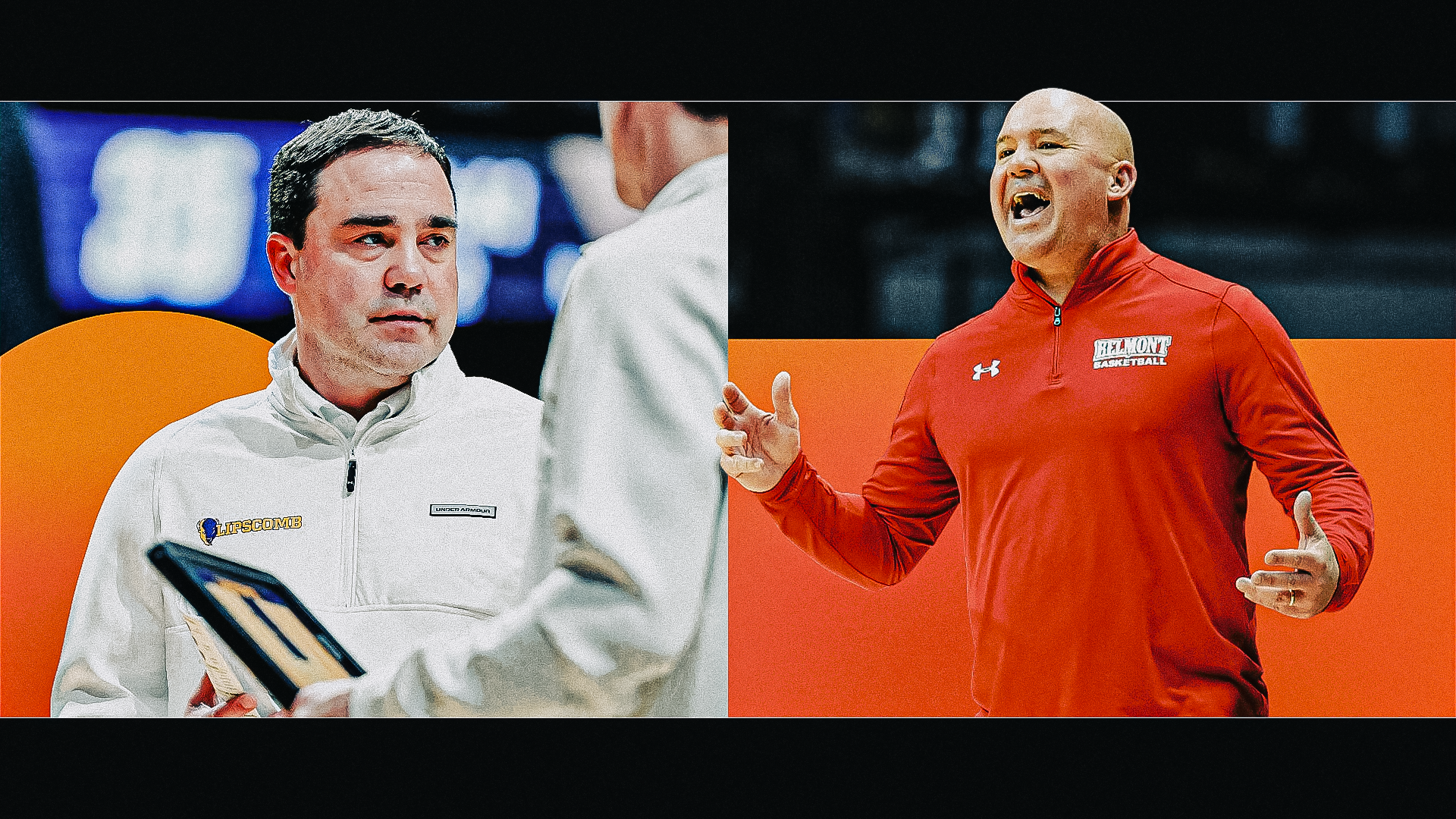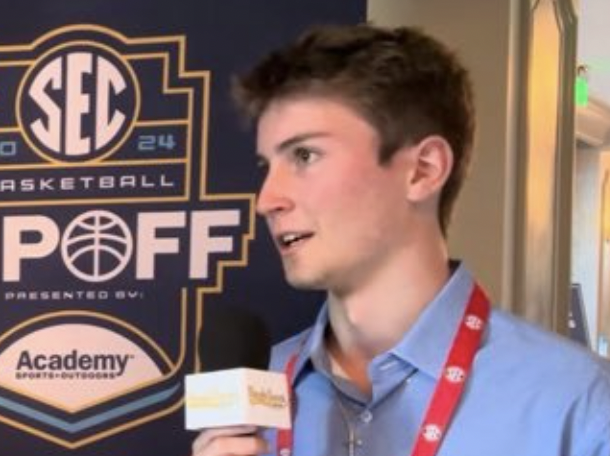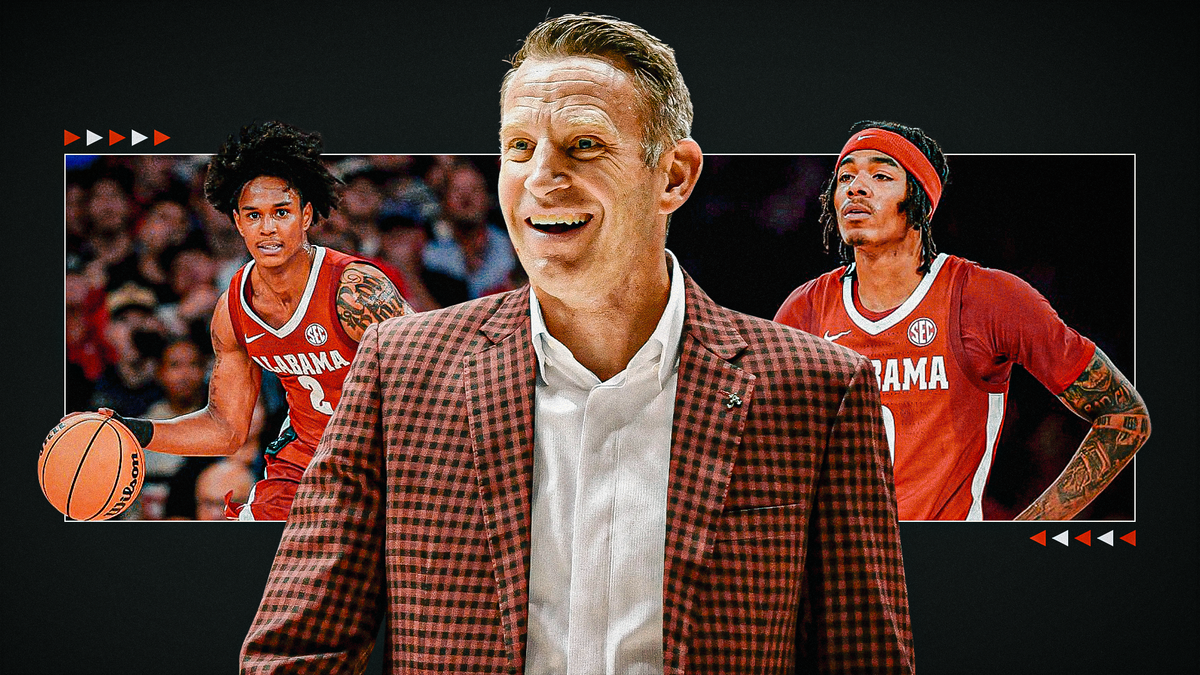NASHVILLE—On the brink of immortalization and infamy, Isaiah Walker stepped up to Allen Arena’s free throw line after grabbing an offensive rebound, putting it back and giving Belmont a bucket to tie it in the final moments of a comeback effort against Lipscomb. If Walker made it, he’d find himself a legend like so many others have as a direct result of this rivalry. If he missed it, some around these parts would disregard his entire body of work in favor of holding this pivotal moment over his head.
Maybe it doesn’t mean much to either team’s NCAA Tournament rèsumè, but for most within these two fanbases this is the most important game of their seasons. This is where star’s legacies are elevated. This is where the unlikeliest heroes find themselves in the spotlight and become remembered forever.
With all the weight of those statements on him, Walker–a career 64% free throw shooter and 4.3 point per game scorer heading into the night–stepped up to the line and pursued his moment. As he used his unorthodox, clunky release to push it toward the rim, a hush fell over the arena. In a few seconds, half of its attendees would be celebrating while the other half sat in agony over the result.
Surely the least likely subject free throw shooter wouldn't take care of business mere days after missing the front end of a late one-and-one that contributed to a Belmont loss to Furman, right?
Wrong. The first mistake with that statement was counting this rivalry out from providing anything.
“It’s funny how the basketball gods work,” Walker said that night. “You try to make it feel like another game, but it’s different for sure. It means a lot to a lot of people.”
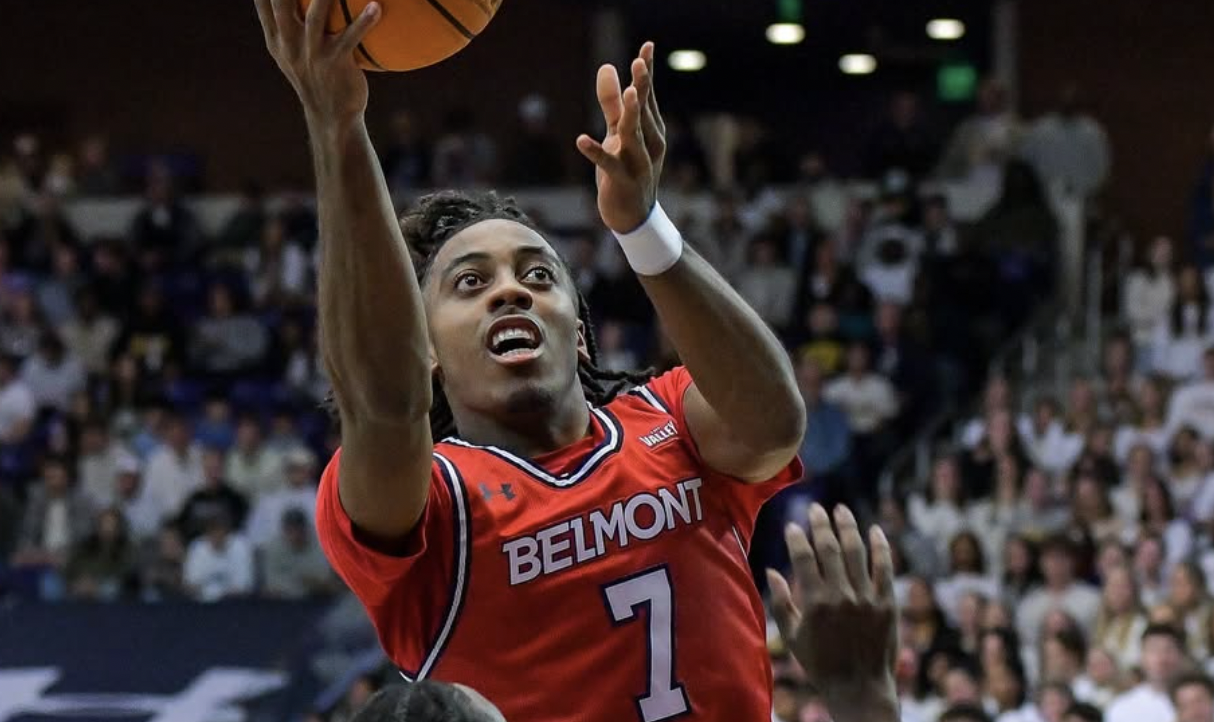
Walker–a now Xavier wing–is the latest in a line of rivalry heroes ranging from current Tennessee and former Belmont guard Ja’Kobi Gillespie, current Washington and former Lipscomb forward Jacob Ognacevic as well as former Belmont wing Dylan Windler.
The moments that each of those rivalry heroes authored have a few trends unique to this series. All of their heroics came in games that were decided at the buzzer. All of them resulted in half of the crowd in the building cheering and the other half falling dead silent. All of them are microcosms of what makes this thing so special.
Each of the last three games have been decided by two points or less, two of them have included double-digit comebacks and all three have had a finish at the buzzer.
If the rivalry guarantees anything it’s parity.
“It seems like there’s been very few lopsided games in the course of its history,” Lipscomb coach Kevin Carroll told Basket Under Review. “It’s one of the greatest midmajor rivalry games in the country, if not the greatest.”
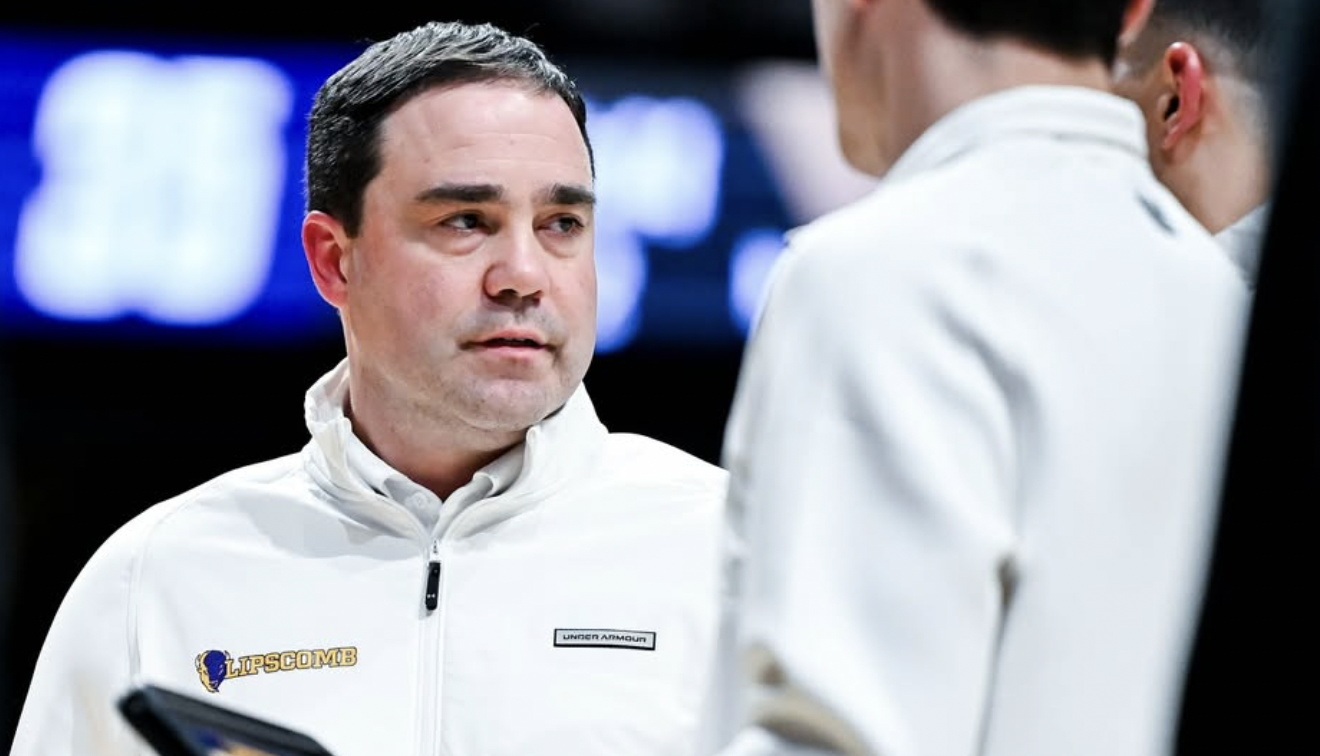
For a little over an hour each Sunday evening, nearly every member of Belmont and Lipscomb’s rosters drops the rivalry at the door, walks into former Belmont guard Taylor Barnette’s house and acts as brothers rather than competitors. Barnette–a former assistant coach at Louisville who has since gotten into business–leads a Nashville Basketball Bible study in which members of the two teams, Vanderbilt and local Division-II Trevecca Nazarene come together to pursue their faith.
Carroll and Belmont coach Casey Alexander’s players are connected by nature in that most of them chose to attend their respective universities because of the school’s Christian values. Belmont describes itself as “a Christ-centered, student-focused community,” while Lipscomb says its mission is “to be a Christ-centered community preparing learners for purposeful lives through rigorous academics and transformative experiences.”
“We’re rivals, but we’re not enemies,” Carroll said. “We have a lot of respect for them.”
The people that make up these two programs are too tied together and too similar to be enemies. Carroll gave Belmont assistant coach Luke Smith his first college assistant coaching job at Trevecca Nazarene prior to Smith departing for the Belmont staff and Carroll taking the Lipscomb job. The teams play pickup with each other every summer. A Lipscomb and Belmont starter read the same theological book recently and took time to discuss it together. Alexander often takes his daily run down Belmont Boulevard and through the sidewalk next to Lipscomb’s campus.
Mere proximity is perhaps the flavor that’s kept this thing afloat through its first matchup in 1953, transition through NAIA, gap while Belmont was a Division-I program and Lipscomb was not, twice a year conference rivalry and now once a year non-conference outing.
The schools are just 1.9 miles apart, account for the NCAA's closest-by-distance rivalry and are both located on Belmont Boulevard–which a few Lipscomb students, one of which is now a Bible professor at the University, once renamed ‘Lipscomb Boulevard’ by climbing up and altering the street signs after a Bisons’ win. Another Lipscomb faculty member often tells a legendary story in which he made a sign with a Lipscomb point guard’s face photoshopped onto famous Belmont fan Vince Gill’s wife Amy Grant and Gill ended the interaction by signing the sign and sharing his respect for the Lipscomb guard.
The rivalries’ NAIA days included the two teams taking the floor at Vanderbilt’s Memorial Gymnasium and selling the place out in 1990, occupying all of Nashville’s attention on an early-season night each season and fulfilling the city’s appetite for high-level athletics prior to the Tennessee Titans’ and Nashville Predators’ arrival.
Two professional teams, a rapidly-growing nightlife scene and the expansion of network television have taken the rivalry out of the spotlight and its players have become friendlier than the ones of those days were, but this thing still hasn’t lost all that much of its flavor.
“There’s still something special about a local rivalry to me,” Lipscomb athletic director Philip Hutcheson–who once held the college basketball all-time scoring record with 4,106 points as a member of the Bisons–told Basket Under Review. “It’s just special to me because it reminds you of what Nashville was, but it’s also special because it’s still in my opinion a really significant part of the current Nashville sports fabric.”
Through the changes college basketball has endured, Nashville’s rapid growth and the hundreds of players that have come and gone, this thing still hasn’t lost its luster. Heading into Wednesday night, Lipscomb leads the series 76-75. It’s yet to have a disappointing crowd for the outing, either.
It appears as if this rivalry is still compelling enough these days to question whether it should go back to a twice-a-season occasion like it was when the teams shared a conference. “We’d do it,” Alexander says while prefacing that it may not make sense for Lipscomb to do it as a result of its ability to schedule buy games and that it will be “hard to go back.” Hutcheson says “never say never,” but believes the series may be better off with the buzz that only playing once generates.
The rivalry has seen it both ways over the years and has demonstrated its staying power through the differing circumstances.
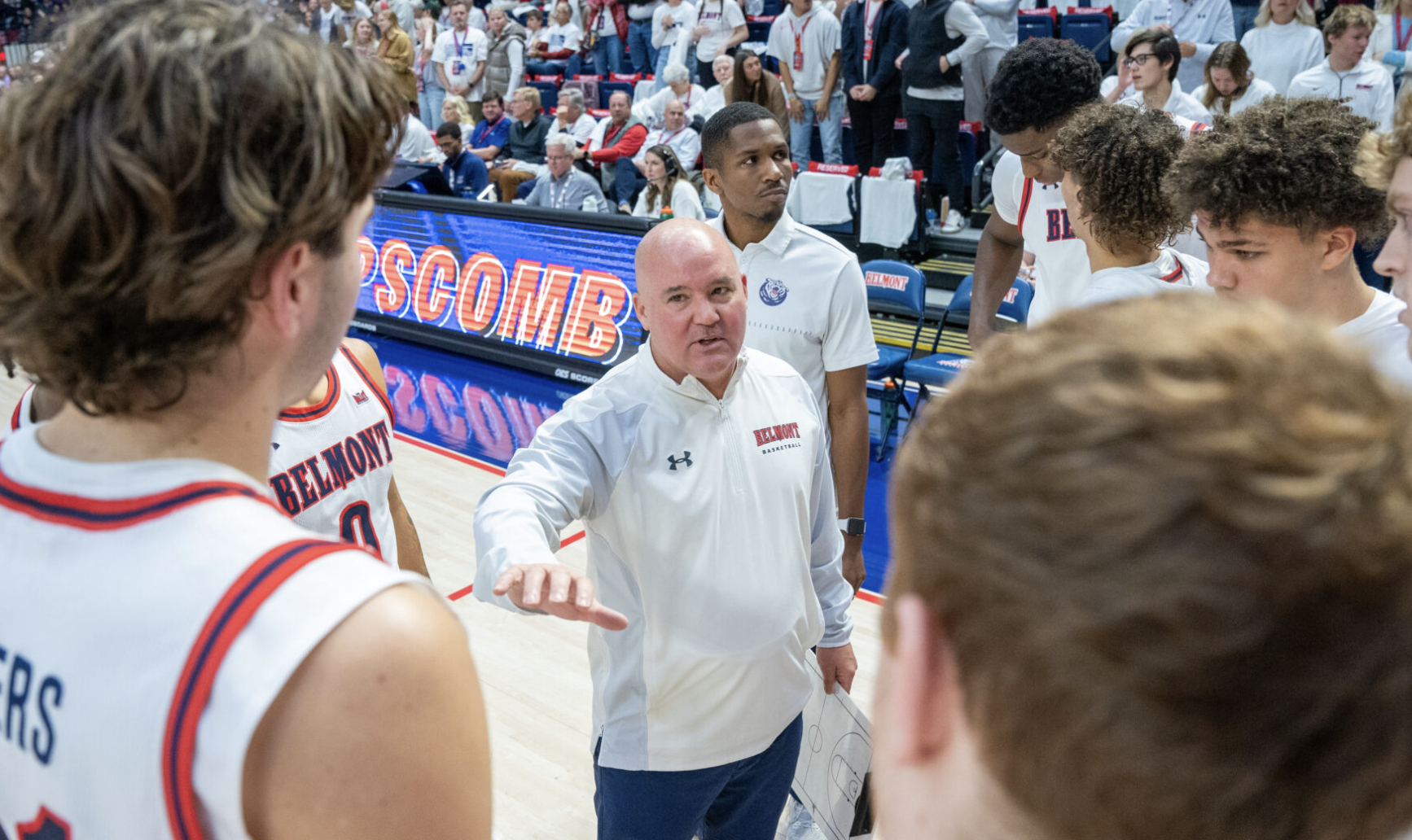
“It’s awesome,” Alexander said of the rivalry. “It's interesting just how many twists and turns it's taken. It was a great NAIA rivalry, then we went division one and didn't play, and then they joined us, and it was great again. Then we went to the OVC, and we weren't in the same league, and now we're playing in November, but it's maintained its health. I wish we were playing for championships and it was in January and February, and regular season standings were on the line, but we can't do anything about that.”
Alexander himself adds a layer to the rivalry as a Belmont alum that spent six seasons as Lipscomb’s head coach and brought it its first 20-win season since 2006 in 2016-17, its first NCAA Tournament berth in program history, two wins over Belmont and a 29-win season before departing for the job down the road in 2019 after legendary head coach Rick Byrd retired.
The now Belmont head coach was responsible for a golden era of Lipscomb basketball and raised its standard for incoming head coach Lennie Acuff while taking down Lipscomb in six of the seven matchups the two coaches had in the series. Acuff eventually overcame the pressure that was cast upon him by Alexander’s tenure, built a winner and led Lipscomb to an NCAA Tournament in 2024-25 before departing for the Samford job.
“I got here and Casey [Alexander] had done an unbelievable job and he took a job two miles down the road” Acuff said while verbally reflecting after clinching the second March Madness bid in program history, “Could you not move farther away? He’s a Nashville guy and Belmont is Belmont. But, I felt like we were really fortunate to hire a staff that believed in what we were doing.”
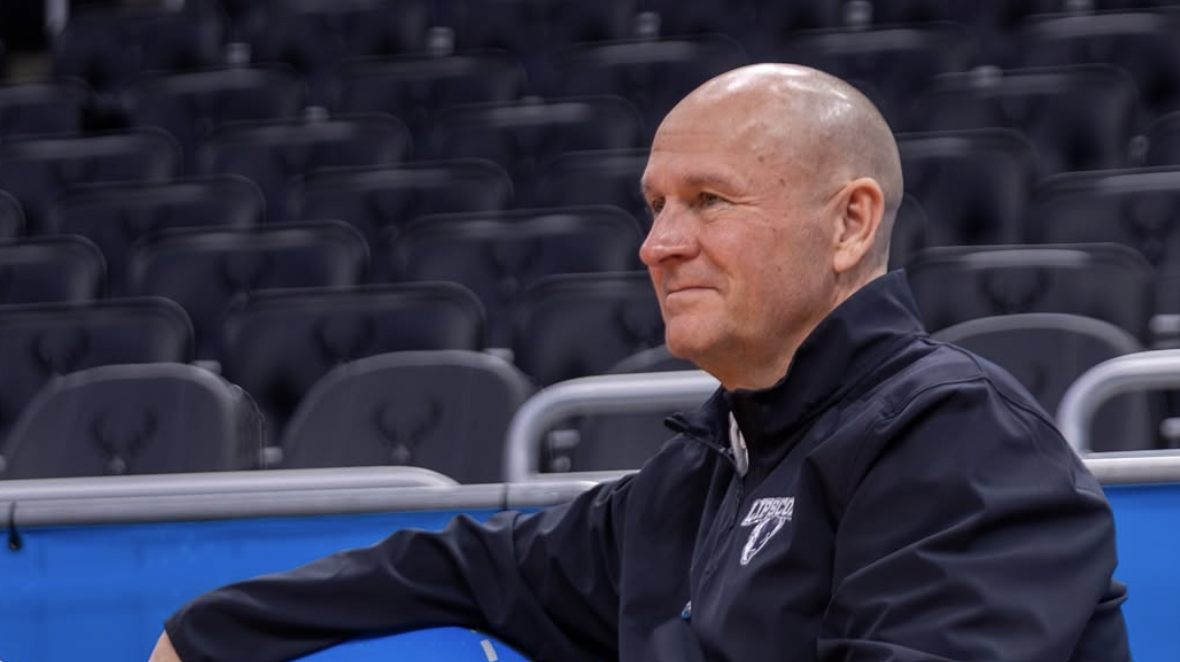
Acuff’s tongue and cheek remarks about Alexander not moving far enough away–which likely have some truth behind them–are the closest thing to negative descriptors that he’s uttered surrounding the Belmont coach over the years. The former Lipscomb coach often said publicly and privately that he lived just a few miles from Alexander, liked him and had a great deal of respect for him while Alexander often reciprocated the comments.
In a way, the appeal of the rivalry to each fanbase is its morality. Seldom will a poor word be uttered about the other from either program, but that’s never diminished the intensity of the matchup.
“There's a mutual respect that we have for each other that doesn't stretch too far,” Lipscomb guard Ethan Duncan said. “It's not like a friendly relationship where we're going out to eat with them, but we can acknowledge the fact that it’s bigger than basketball and it's just two of the three schools in this area. So there's a similarity there that lies in between like the murky line of rivalry. I think that’s what makes it a little bit sweeter.”
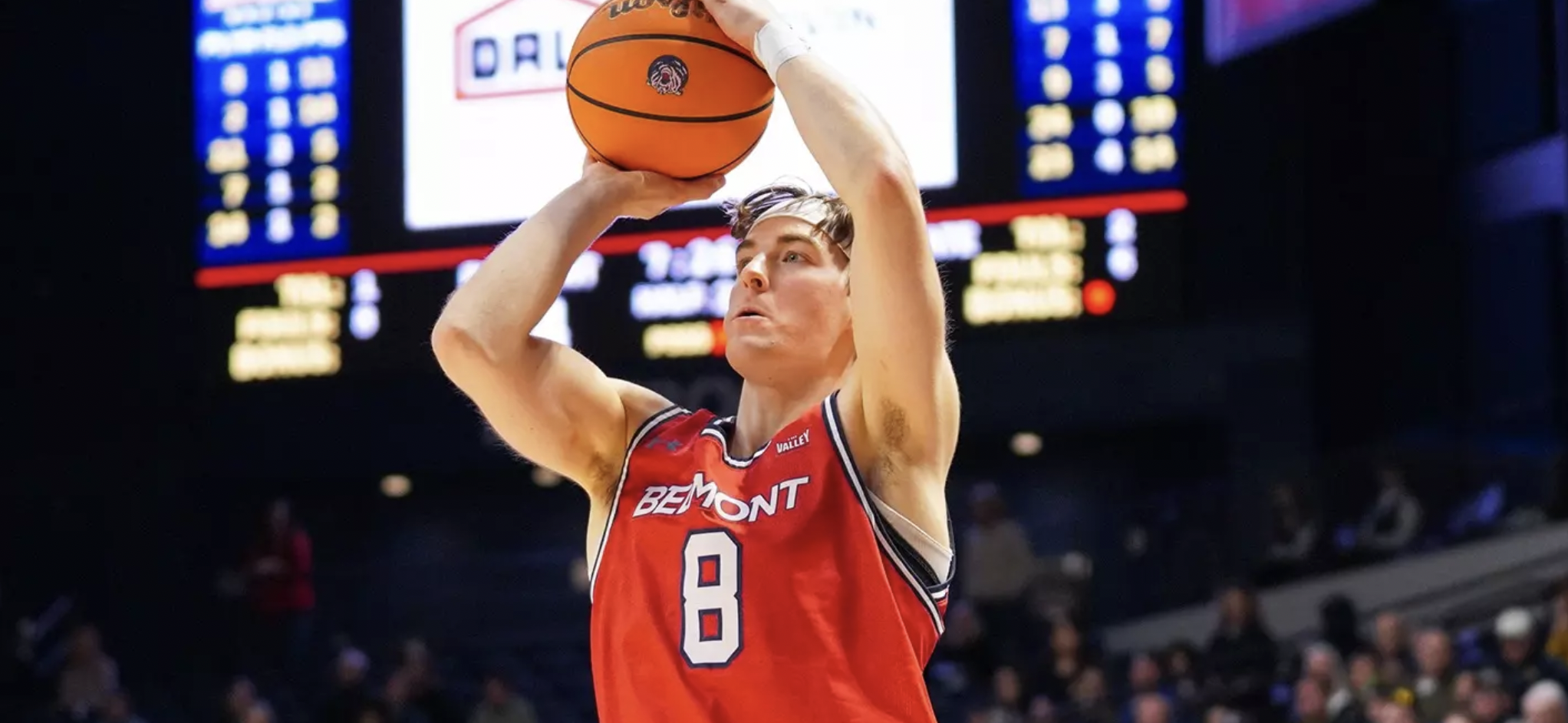
It’s Thursday Oct. 30 and Tyler Lundblade is mixed into the crowd at Belmont’s Tip-Off lunch after a season in which he ranked among the nation’s best 3-point shooters and an offseason in which he fended off power-five programs to return to Alexander’s Belmont team. Yet, he was often stopped by fans to discuss something else that day.
“They were talking about beating Lipscomb,” Lundblade said. “I think that it means a lot when the people up top really care about it and it trickles down to everybody else.”
Lundblade says that everyone from Belmont athletic director Scott Corley down to Belmont’s players have “that one circled.” The Belmont wing says he was “green” to the rivalry after arriving in the late summer as an unhearalded transfer from TCU, but has grown to understand its magnitude over the past year and a half.
Hutcheson alludes to the idea that the longer an individual has been around this series and the more people they know that are involved with it, the more impactful it becomes. The Lipscomb athletic director estimates that the casual fan in town likely doesn’t start their college basketball fandom until at least a month from now and that his men’s basketball program as well as Belmont’s can’t define their seasons based off of what happens on Wednesday like a sect of each of their fanbases do.
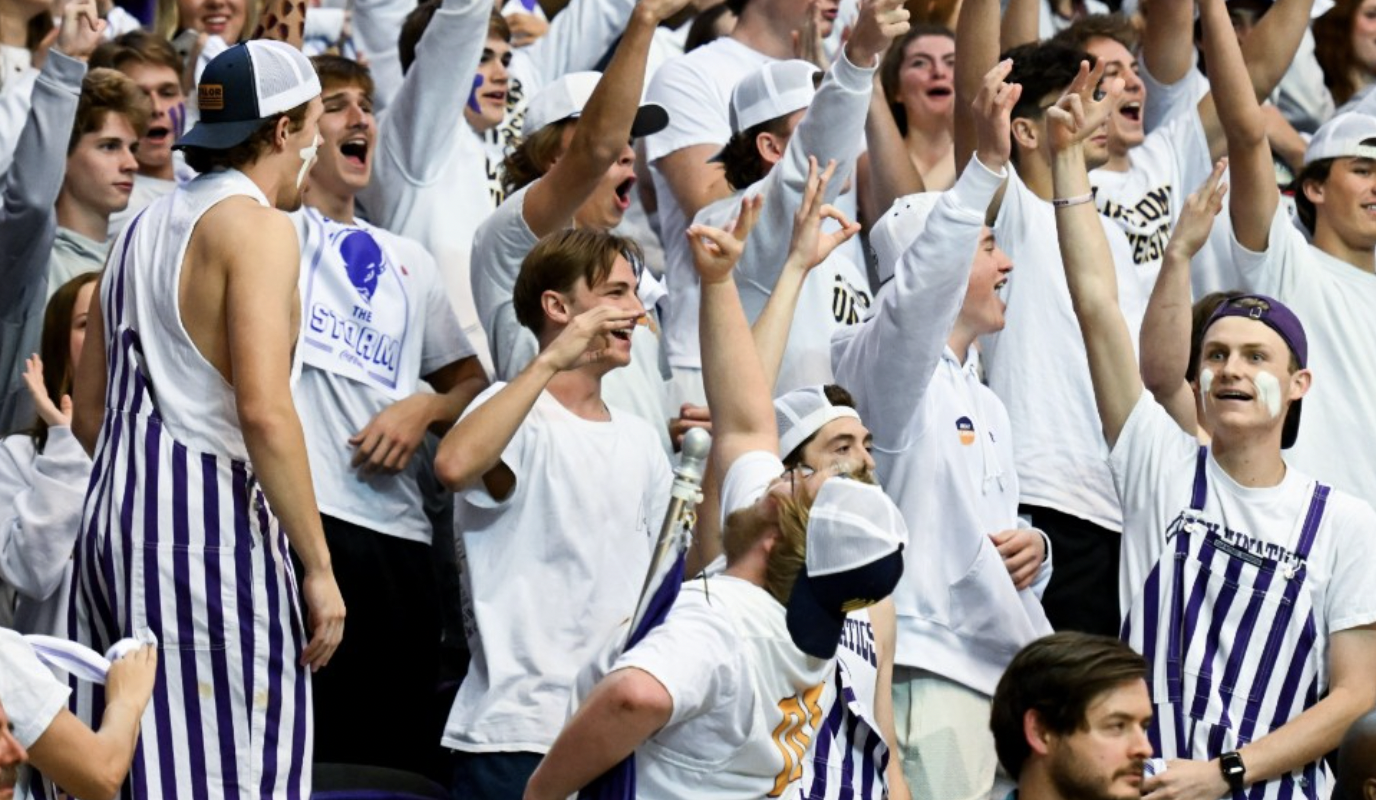
“The challenge is that they still have 20-25 games to play after this,” Hutcheson said. “Ultimately we’re both playing or trying to be better in January, February and March trying to go to the tournament. So, it’s a balance. I won’t act like you don’t want to win, but most teams also know you can’t spend all of your emotional energy in the first 15% of the season.”
The appeal of this series has often been what the teams that have met early in the season have gone on to do beyond that night. Each program has been a 20-win season factory over the past few seasons, both have had players transfer to high majors and Lipscomb won its conference to clinch an NCAA Tournament berth last season.
As these two teams in particular meet, Belmont is projected as the MVC’s fifth-place team and Lipscomb is projected as the ASUN’s seventh despite an 0-3 start against Division-I opponents. Both programs feel as if they’re capable of eclipsing those positions–Belmont because of its returning core of Lundblade, Sam Orme, Drew Scharnowski and others while Lipscomb’s confidences comes as a result of a veteran transfer class as well as a group of returners that know how to win as college players.
Wednesday night, they’ll test what they’ve built on a spotlight unlike any other that they’ll see this season.
“Belmont’s got a very strong team this year, got a lot of returners from last year, we’re a little bit more in rebuilding mode right now, but we expect it to be coming down to the wire again,” Carroll said, “No matter where the teams are and their progress that year, that's kind of what ended up happening and how I would expect the same thing this year.”

